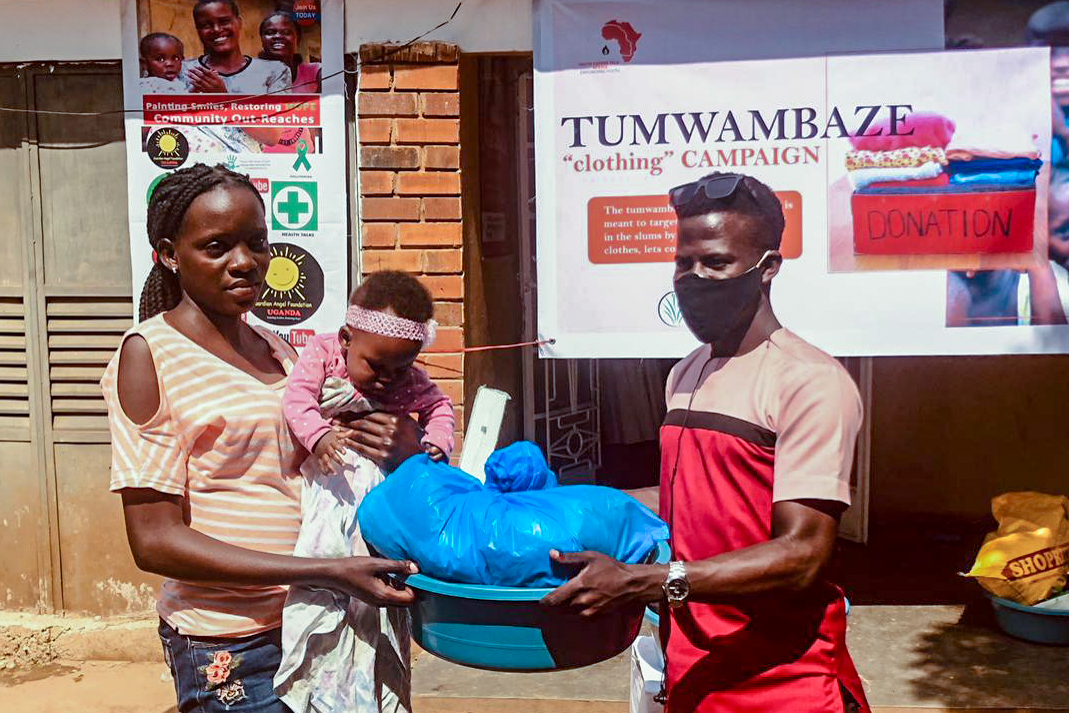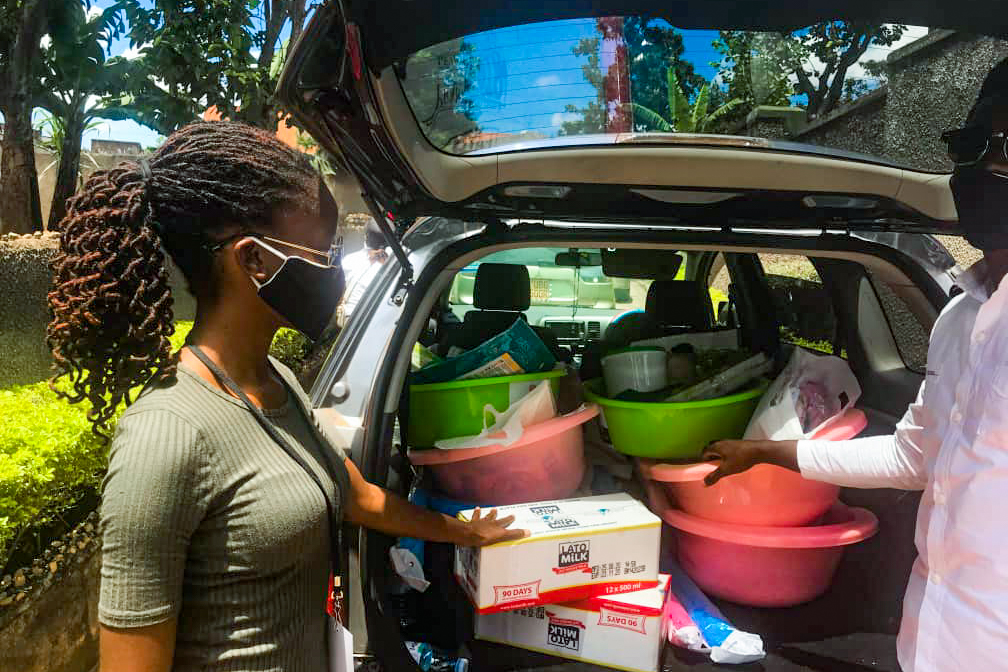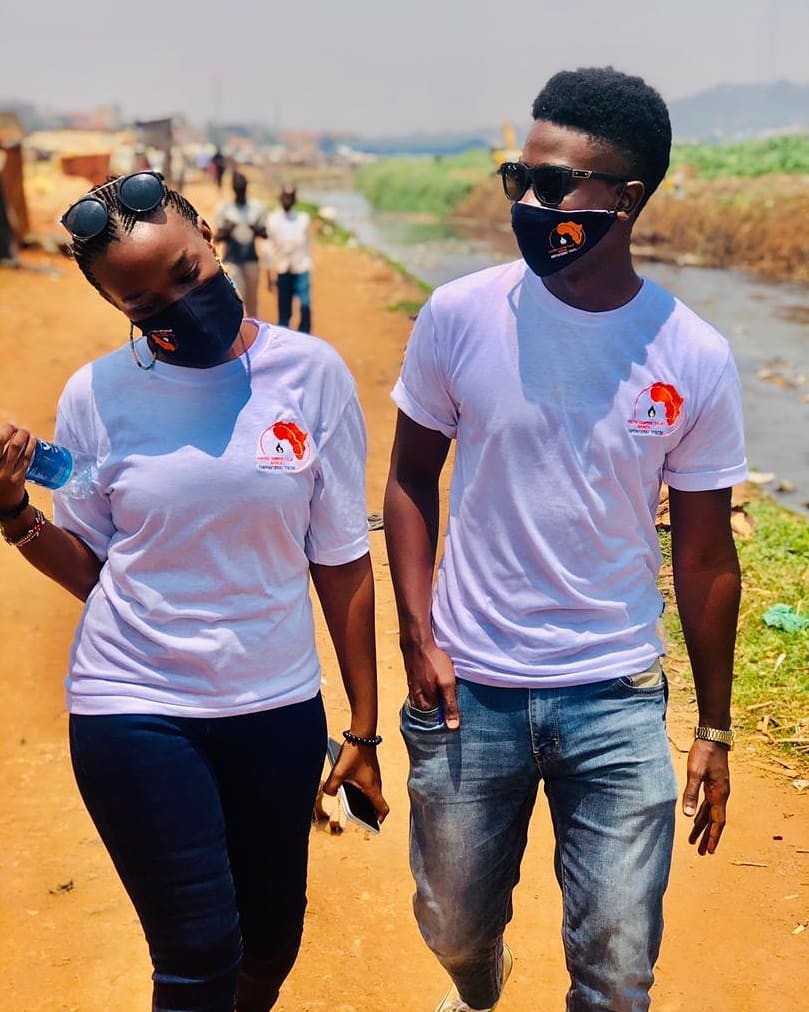
How Western development aid continues to stifle local initiatives

People and organisations in developing countries know what is best for them. But they are regularly pushed to the sidelines by Western development aid.
When he was 13, Bwaita Aggrey met Jacob and Frida from Sweden while walking around Jinja, a town in southeast Uganda on the shores of Lake Victoria. “They were young and had no money for a tour guide,” says Aggrey. So he offered to show them around for free. All he asked for in return was “a guarantee they would become my friends”. On parting, they exchanged telephone numbers.
Several weeks later, Aggrey received a text message from Sweden. Jacob and Frida had told their friends and families about him and raised money for his education. “I was so excited,” Aggrey wrote in a message to SWI swissinfo.ch.
Jacob travelled from Sweden to Uganda again and helped the boy open a bank account. Before leaving, Jacob told him: “It is your future. You decide how you spend the money we send you. Whether you use it for school fees or spend it with your friends is up to you – but do not disappoint us.”

Helping people via social networks
Today Bwaita Aggrey is 21. Not only is he a rising fashion star in Uganda, with his own fashion label, but in 2020 he founded the youth platform “Youth Coffee Talk Africa”, which aims to empower Ugandan youth through technology, education, entrepreneurship and exchange. Aggrey motivates young people to volunteer in their communities.
During the Covid lockdown, his non-governmental organisation (NGO) provided 1,000 girls living in slum areas with sanitary towels. A clothing donation campaign was also organised. On YouTube and Instagram “Youth Coffee Talk Africa” raises young people’s awareness of the importance of wearing masks and gives advice on what to do if you fall ill. The NGO has also used social networks for a campaign against teenage pregnancies.
“Jacob and Frida inspired me and motivated me to do my work,” says Aggrey. “They gave me self-confidence. When I was 13, I learnt financial discipline, as I had to manage and prioritise the money they sent me.”

Development aid crushes local initiatives
Bwaita Aggrey’s story shows that local initiatives can be an alternative to Western development aid. In other words, instead of “white saviours” from overseas, people in developing countries can be the heroes of their own narratives.
This is not a new debate. For decades foreign aid experts from NGOs and the United Nations have been debating how to channel funds more efficiently and involve those concerned on the ground.
According to British-Nigerian political scientist Faye Ekong, who grew up in Ghana and now works as a management consultant in Kenya, small local initiatives such as “Youth Coffee Talk Africa” are a possible complement to traditional development aid. However, the problem, she says, is that “once the machinery of international development aid starts up, all local initiatives are wiped out. It’s like Walmart in the US. If the supermarket chain opens a branch somewhere, the small shops go out of business”.

In Ekong’s view, international development aid should work to strengthen existing local efforts, instead of launching new projects. “Especially in Africa, we have seen great progress in a short time thanks to social entrepreneurship: people have invested in their own communities, they know what is needed, they are more trusted, and they are not held up by formalities and reports.” The advances made are also more sustainable, as those involved feel personally responsible for the project. This is by no means the only way forward for development aid, Ekong concludes, but it is a useful complement that deserves more attention.
Switzerland gives funding to all
This is exactly Switzerland’s approach. Switzerland is the only country that publicly awards bilateral development aid projects in accordance with World Trade Organization (WTO) guidelines. This means that any aid organisation in the world can apply for Swiss funding – not just a Swiss or American NGO, but also a Ugandan micro-organisation like “Youth Coffee Talk Africa”. In other countries, governments mainly award contracts to national NGOs. According to the NGO Peace Direct, it is mostly the “usual suspects” that receive public funds; in other words, those aid organisations that already have a relationship with the donors.
Swiss NGOs, meanwhile, are not happy with Switzerland’s approach. Critics say it puts them at a disadvantage compared to foreign competition.
There is no international obligation to publicly tender development aid projects. The Swiss parliament decided this on its own initiative. And it upholds the principle firmly: lawmakers recently rejected a motion calling for Swiss NGOs to be given priority.
From a Swiss perspective, it may be frustrating when a British NGO, and not a Swiss one, snaps up a contract financed by Swiss taxpayers’ money; but for NGOs from developing countries, the Swiss approach is – at least in theory – an opportunity. Thus, a Colombian NGO can apply for funding for a project in Colombia; it probably has more expertise and local knowledge, for instance, than a French-run organisation.
What the figures show
This doesn’t mean NGOs from developed countries are losing out on Swiss funds. On the contrary. According to the foreign ministry, a total of 141 development cooperation projects were publicly awarded between 2017 and 2020. Of these, 80 went to Swiss providers, 44 to providers from developed countries and 17 to local providers.
The application requirements for contracts are stringent. There are rules on compliance, monitoring, reporting and so on. “Meeting these demands is challenging and requires institutional capacities,” a spokesperson for the foreign ministry wrote in a reply to SWI swissinfo.ch. Peace Direct criticises the Western – mainly bureaucratic – requirements, which are based on Western values and knowledge systems and automatically devalue local knowledge, thereby excluding local organisations from receiving funding.
However, Switzerland fares far better than other Western countries when it comes to channelling funds closer to the needs of local population.

The Organization for Economic Co-operation and Development (OECD) analysed data from 2018 to 2019. “After European Union institutions and the United Kingdom, Switzerland provided the third-largest amount to NGOs in developing countries,” an OECD spokesperson replied on request. Switzerland is among those States that allocate a high proportion of the budget for aid organisations to NGOs in developing countries.
According to the OECD, NGOs from developing countries still receive the smallest share of official development aid money. Most of the funding goes to aid organisations that are based in the donor countries.
Bwaita Aggrey carries on regardless. Thanks to digitisation, he can reach out to people all over the world.

In compliance with the JTI standards
More: SWI swissinfo.ch certified by the Journalism Trust Initiative






























You can find an overview of ongoing debates with our journalists here . Please join us!
If you want to start a conversation about a topic raised in this article or want to report factual errors, email us at english@swissinfo.ch.